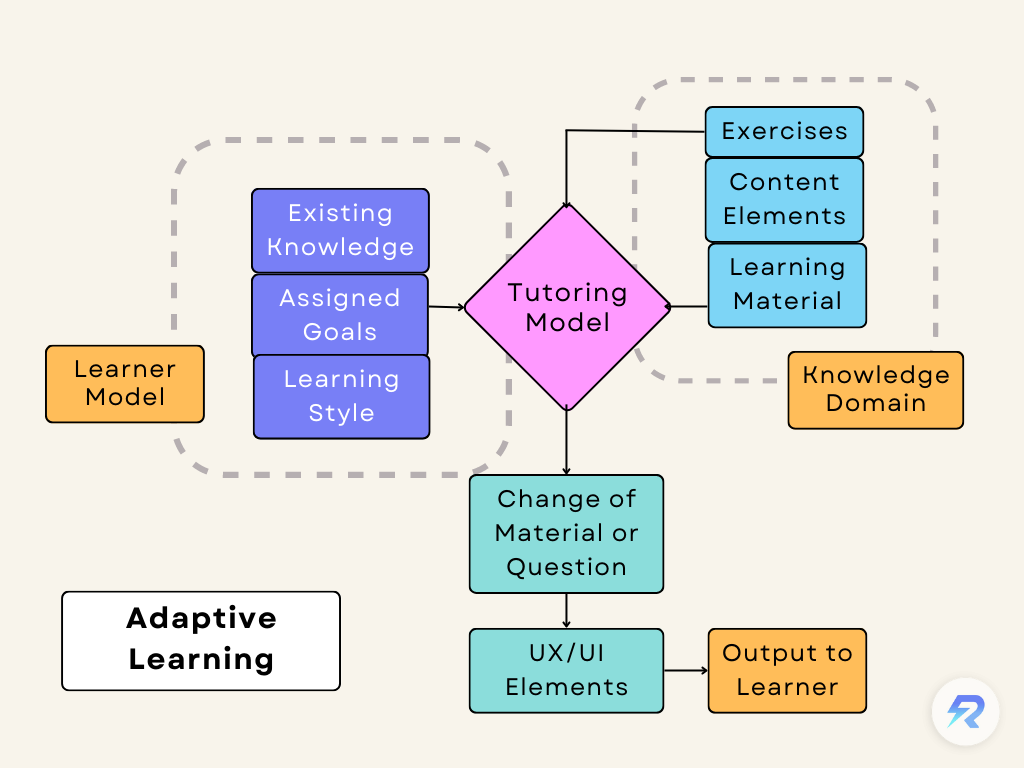Adaptive learning algorithms are a transformative aspect of modern education and technology, leveraging artificial intelligence (AI) to create personalized learning experiences for students.
These algorithms use data and individual progress to tailor instruction, adapting content and pacing to suit each learner’s needs. Here are the key aspects of adaptive learning algorithms:

Personalization: Adaptive learning algorithms cater to each student’s strengths, weaknesses, learning preferences, also progress. They use data analytics to create a unique learning path for every individual, ensuring that the material is neither too easy nor too challenging.
Continuous Assessment: Educators continuously assess students, using their performance data to determine the best content and approach. This ongoing assessment eliminates the need for traditional one-size-fits-all teaching methods.
Feedback and Remediation: The algorithms provide instant feedback, helping students understand where they went wrong also guiding them toward correction. Remediation is provided for areas in which the student may be struggling.
Engagement: Personalized content and learning paths increase engagement. When students see the relevance and adaptability of the material, they are more likely to stay motivated and complete tasks.
Cost-Effective Learning: Adaptive learning reduces the time and resources required for individual tutoring. By automating the personalization process, it provides cost-effective solutions to educational institutions.
Data-Driven Insights: Educators gain valuable insights into each student’s learning journey through data analytics. This information can help identify challenges, improve curriculum design, also support students in their learning endeavors.
Accessibility: Adaptive learning makes education more accessible to a wider range of learners, including those with diverse learning styles, abilities, also backgrounds.
Lifelong Learning: Adaptive algorithms can apply to lifelong learning, professional development, and training programs, tailoring content to the needs of adult learners, not limited to traditional schooling.
Scalability: This highly scalable technology enables educational institutions to offer personalized learning experiences to many students at once.
Evolution of Curriculum: Adaptive algorithms are driving changes in curriculum development. Focusing on dynamic, responsive content that adapts to student progress.
Conclusion
While adaptive learning algorithms could revolutionize education, addressing data privacy. Ethical considerations and the digital divide is crucial to ensure all students benefit from this technology.
As AI and data analytics advance, adaptive learning algorithms will likely become more sophisticated also integral to education’s future. Offering tailored educational experiences that support individual growth and development. 온라인카지노사이트